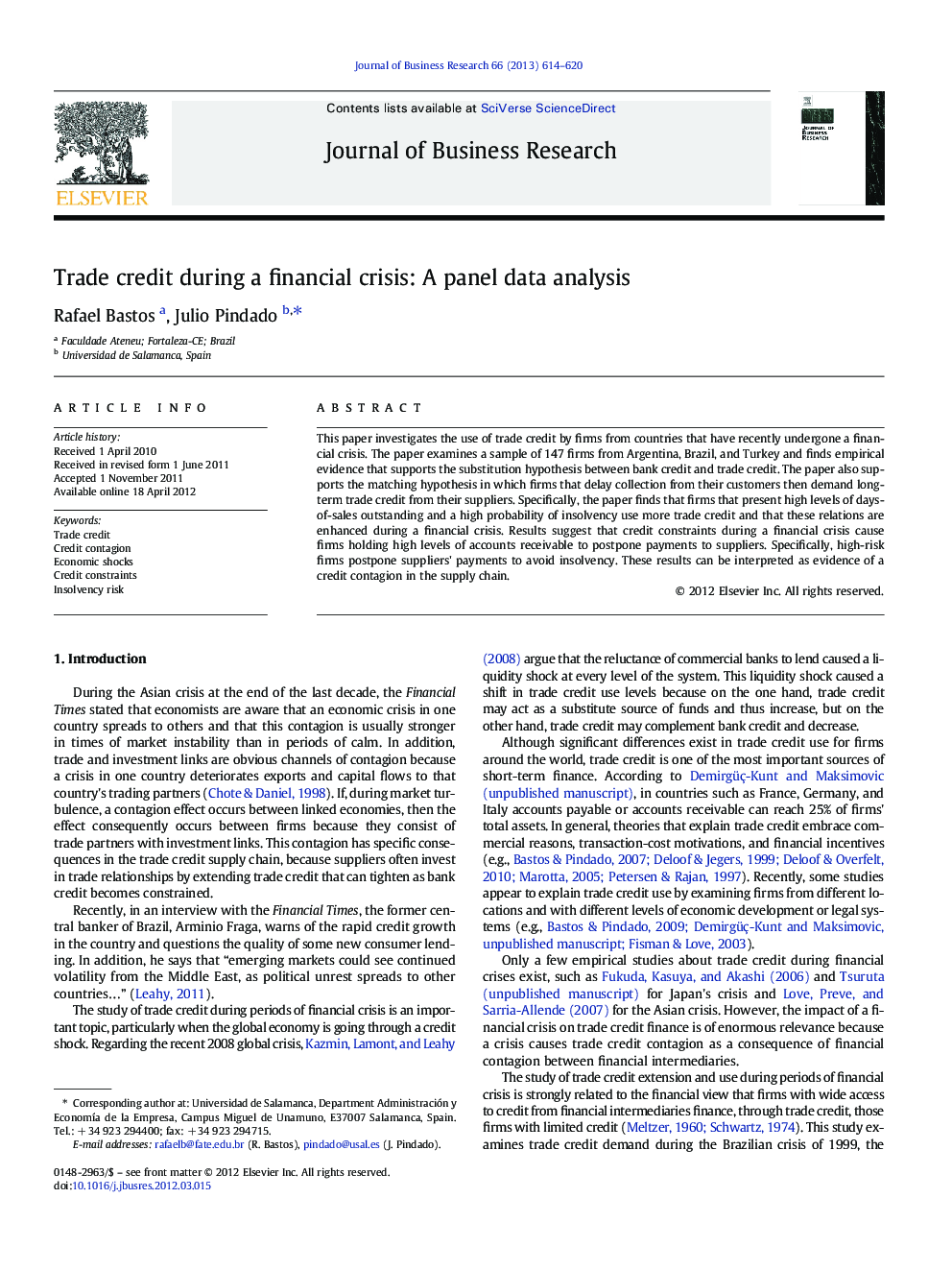| Article ID | Journal | Published Year | Pages | File Type |
|---|---|---|---|---|
| 1017531 | Journal of Business Research | 2013 | 7 Pages |
This paper investigates the use of trade credit by firms from countries that have recently undergone a financial crisis. The paper examines a sample of 147 firms from Argentina, Brazil, and Turkey and finds empirical evidence that supports the substitution hypothesis between bank credit and trade credit. The paper also supports the matching hypothesis in which firms that delay collection from their customers then demand long-term trade credit from their suppliers. Specifically, the paper finds that firms that present high levels of days-of-sales outstanding and a high probability of insolvency use more trade credit and that these relations are enhanced during a financial crisis. Results suggest that credit constraints during a financial crisis cause firms holding high levels of accounts receivable to postpone payments to suppliers. Specifically, high-risk firms postpone suppliers' payments to avoid insolvency. These results can be interpreted as evidence of a credit contagion in the supply chain.
